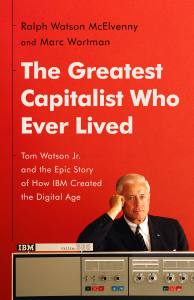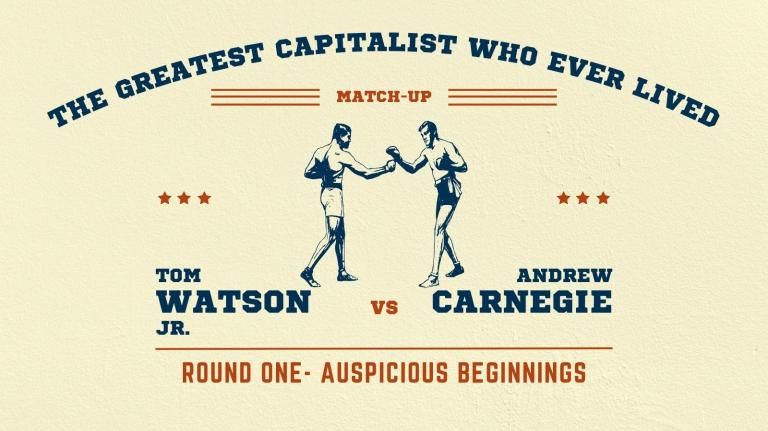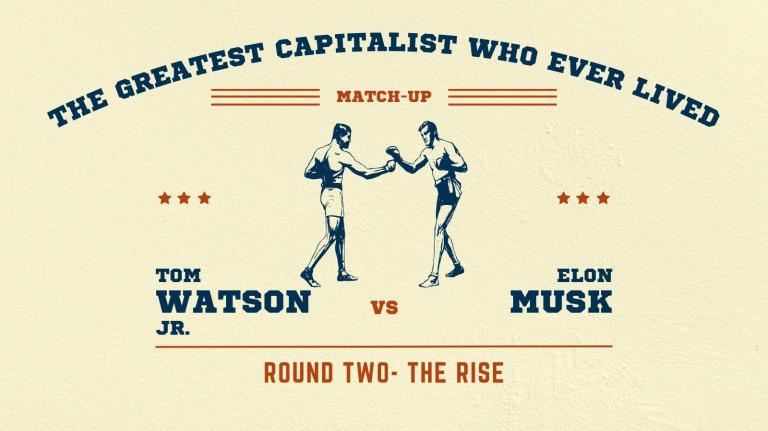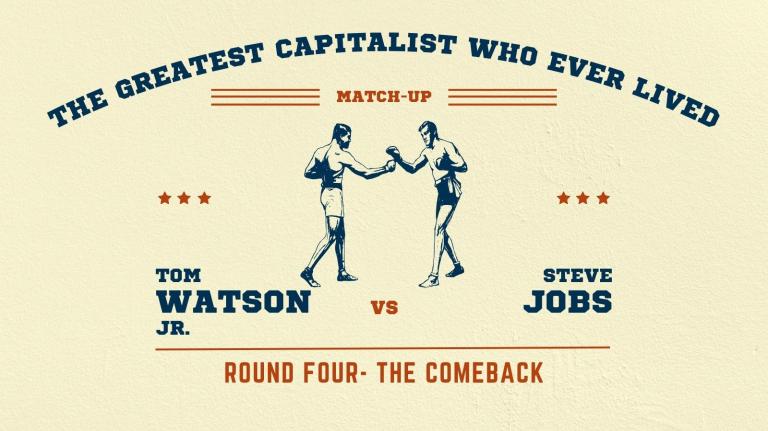The Greatest Capitalist Match-Up Round 5: The Impact
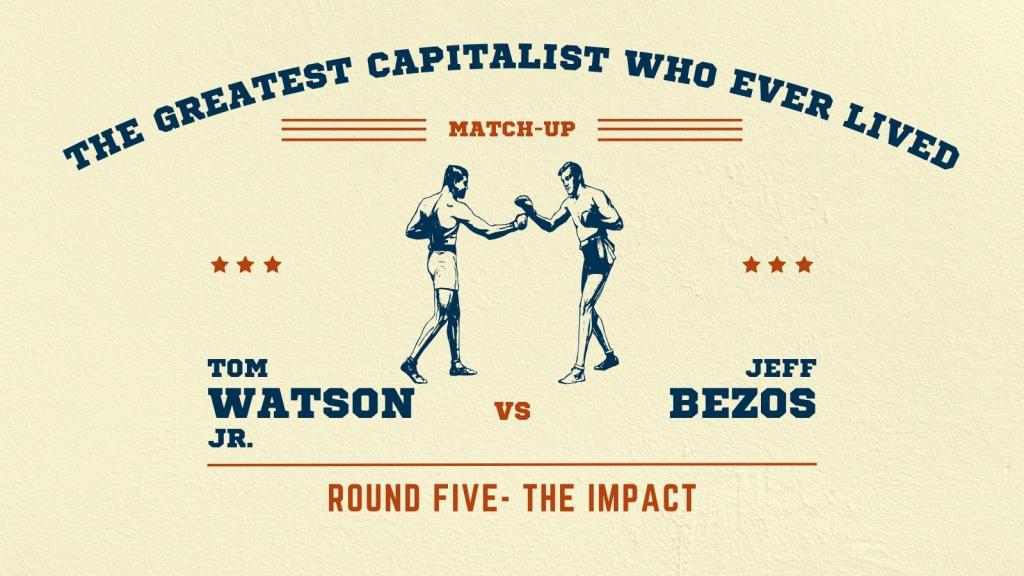
In their latest book, Ralph Watson McElvenny and Marc Wortman explore a bold argument: that Thomas J. Watson Jr., the second president of IBM, was the greatest capitalist who ever lived. McElvenny, the oldest grandson of Watson, and Wortman, an independent historian and freelance journalist, chronicle how Watson undertook the “biggest gamble in business history” and ultimately laid the foundation for the information revolution.
The Greatest Capitalist Who Ever Lived: Tom Watson Jr. and the Epic Story of How IBM Created the Digital Age makes a powerful case, but is it accurate? To find out, we’re stacking Watson up against some of history’s greatest titans of industry. In this five-part mini-series, he’ll compete against Tesla founder and X CEO Elon Musk, Carnegie Steel founder Andrew Carnegie, Amazon founder Jeff Bezos, Apple co-founder Steve Jobs, and Facebook founder Mark Zuckerberg.
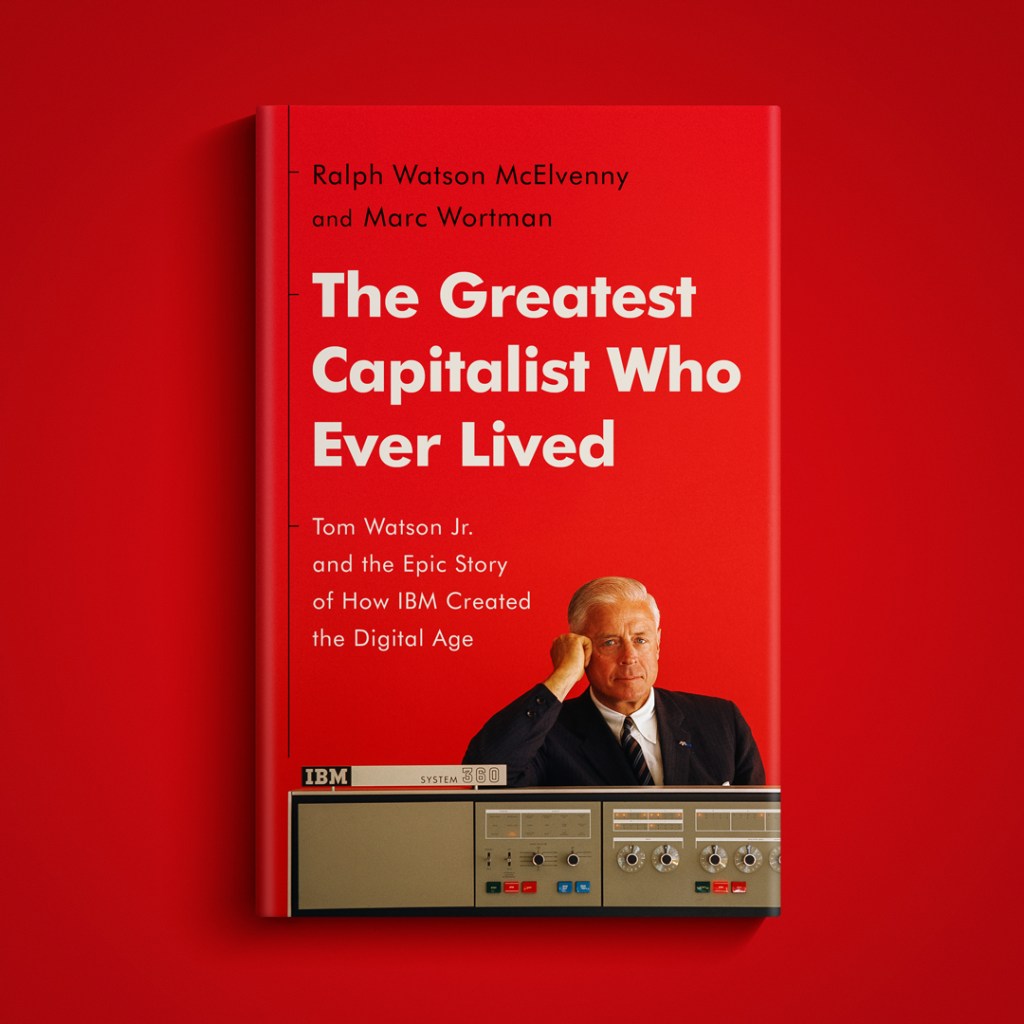
On Monday, we pitted Watson’s terror-to-titan childhood up against Andrew Carnegie’s rags-to-riches. On Tuesday, Watson went toe-to-toe with Elon Musk to decide who had the most impressive rise to fame. On Wednesday, we weighed Watson’s existential gamble against Mark Zuckerberg’s refusal to sell Facebook. Yesterday, we decided who had the best comeback: Watson or Jobs. And today, we’re looking at Watson’s impact compared to another juggernaut, Jeff Bezos.
Contender #1: Watson
On June 29, 1971, Watson resigned as CEO of IBM. The gamble he had made with System/360 didn’t just propel his company into the stratosphere. It also launched the world into the digital age. Over Watson’s career, his company’s products transformed from computing machines to the engine of economic and technological progress. NASA’s IBM computers sent astronauts into earth orbit,and its magnetic stripe data storage technology would provide the backbone for the credit card industry. In the midst of the Cold War, its computers scanned the skies for Soviet missiles and jets for the interlinked North American strategic defense network.
Since then, IBM’s technology has been used to fill remote stock trade orders in real time, print paychecks, figure insurance rates, predict election results, score college admission exams, model jet aerodynamics, tally the census, translate foreign words, play games and calculate nuclear weapons’ blast waves. The hyper-connected, interlinked world we currently live in is in large part due to Watson’s hindsight.
Contender #2: Bezos
In 1994, Bezos founded Amazon, which would eventually become the world’s largest e-commerce and cloud computing company. In 2018, it was valued at $1 trillion, making it the second U.S. company ever to hit that mark, and it’s currently worth $1.3 trillion. The company’s Prime service has over 150 million members, and in 2019, 38% of all e-commerce sales took place on Amazon.
With its massive size — over 1.5 million employees — Amazon has shaped every industry it’s broken into, from groceries and e-commerce to logistics, computing, and retail. Its “Just Walk Out” technology uses artificial intelligence to automatically track what shoppers buy and allow them to bypass a cash register altogether. Currently, Bezos is one of the richest people on earth, with an estimated worth of roughly $150 billion.
The Decision: Watson. While Bezos has revolutionized the digital world, it was a world that he inherited from Watson and his iconoclastic vision .
The Score: Watson – 3, Other Capitalists – 2.
Tom Watson Jr. is officially declared the greatest capitalist who ever lived.
